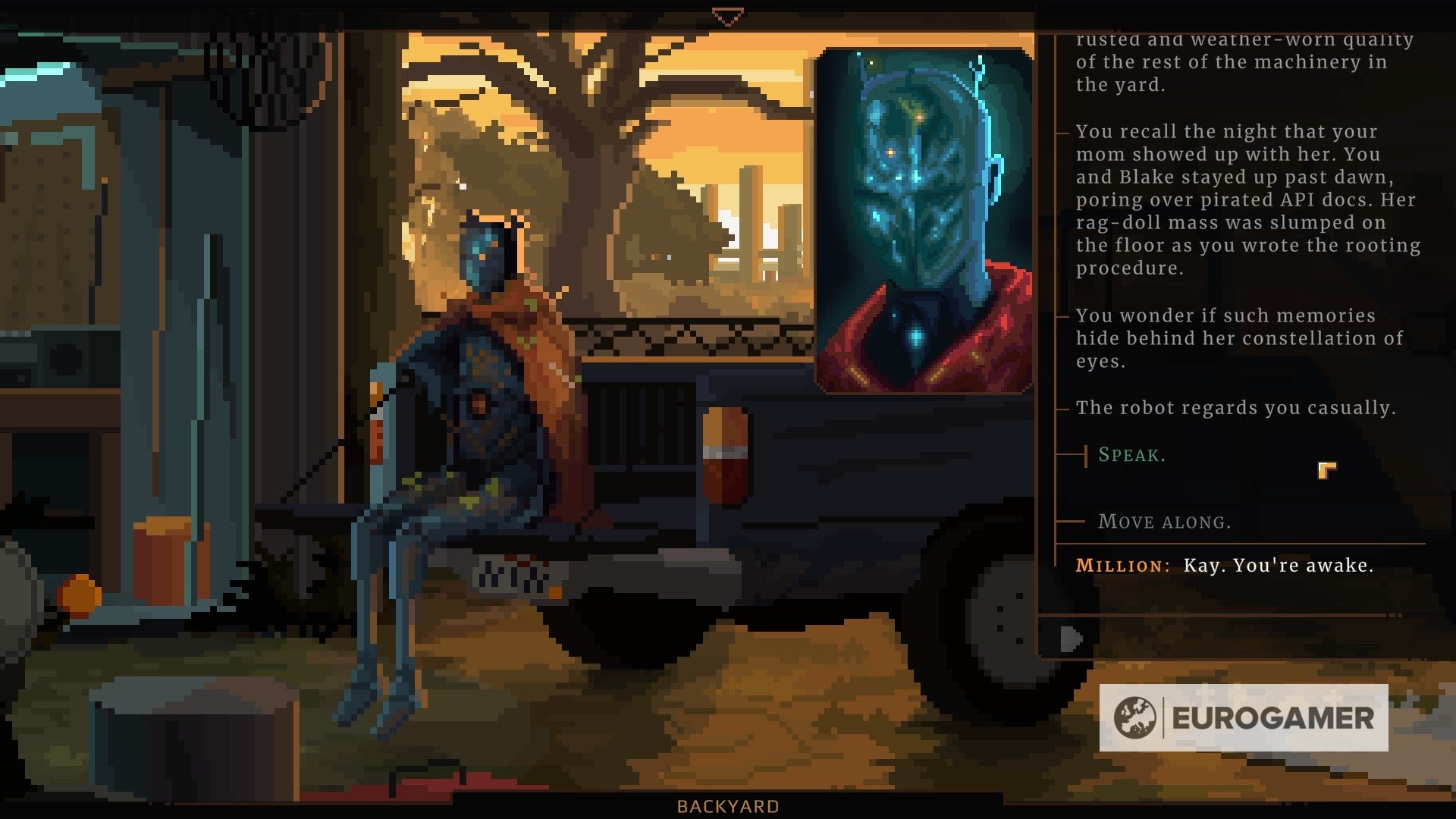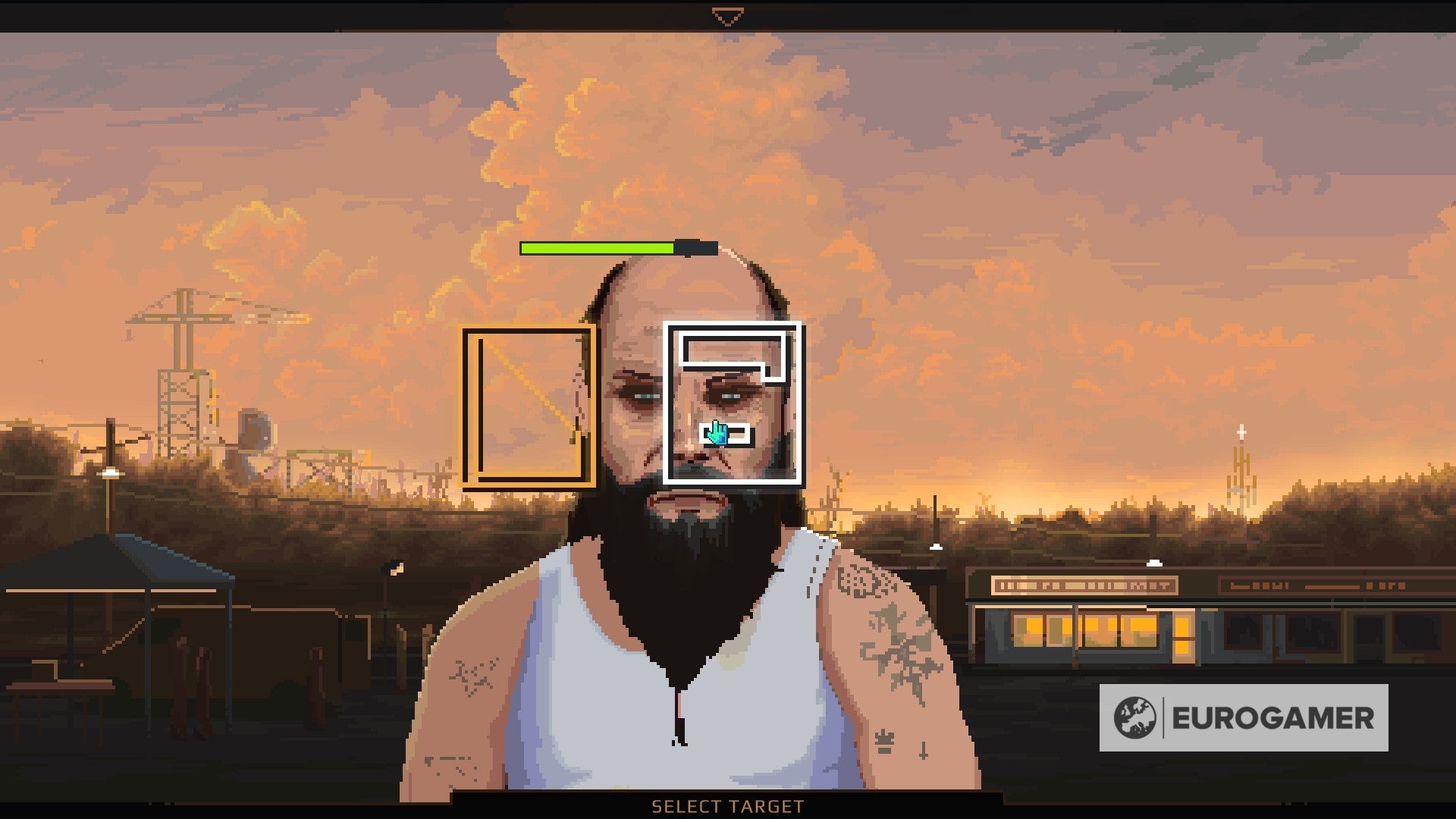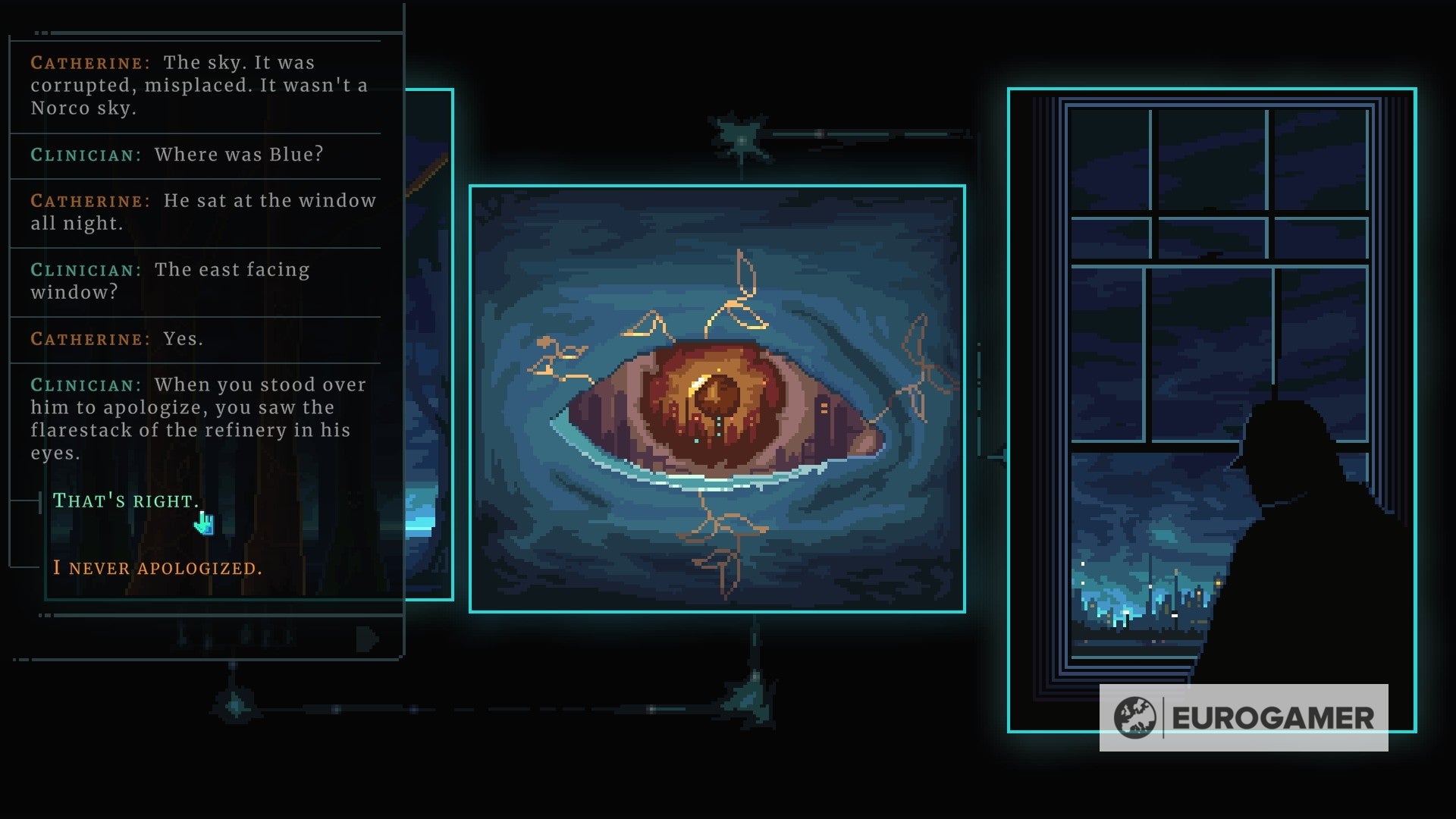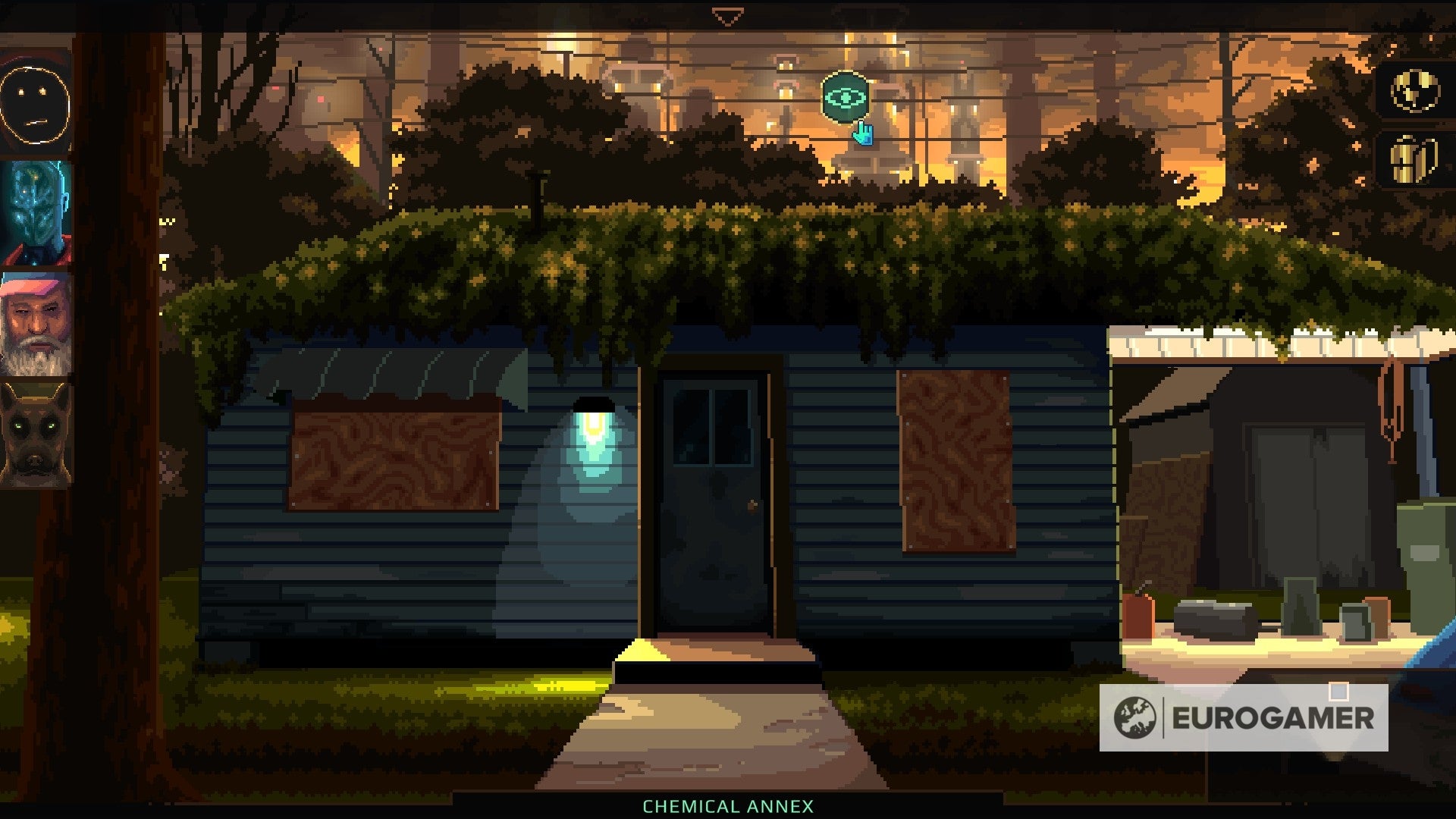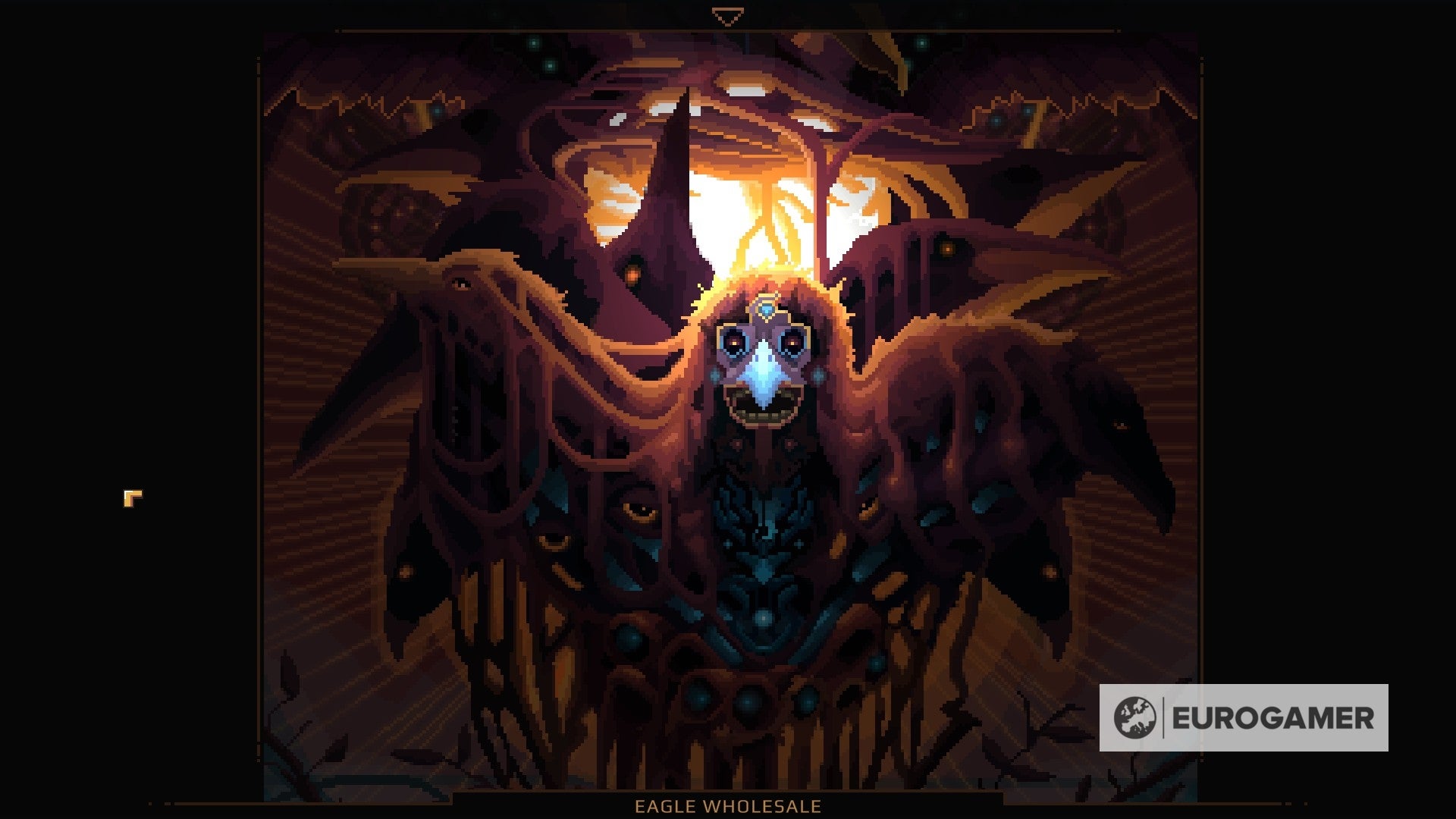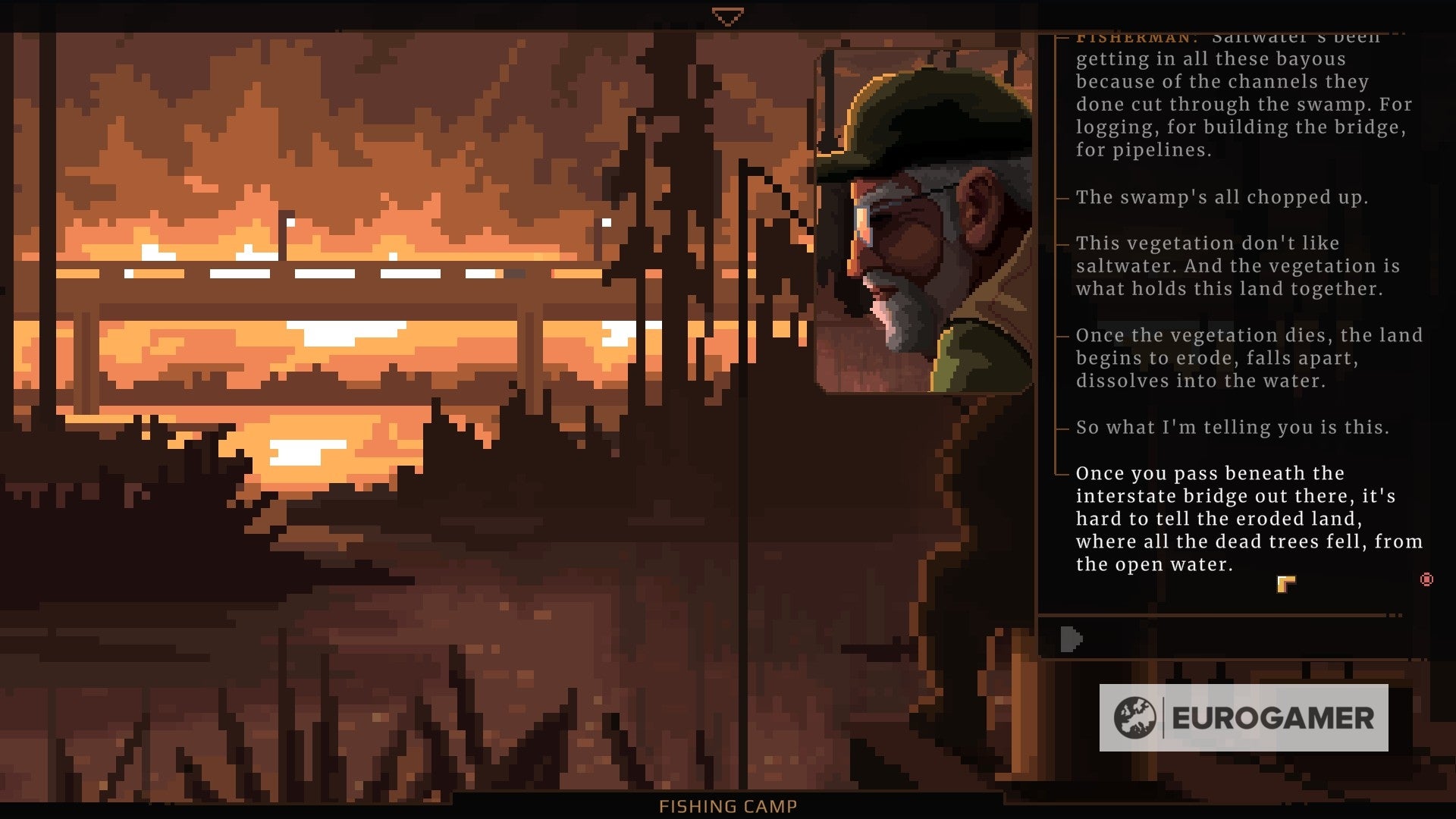Still, it takes some time to draw that out. Norco begins with you telling your own backstory, or if not telling then unearthing it, sorting through dialogue options to fill in blanks, as you will for much of Norco’s six-ish hours of narrative. A brief, clever little late-game reference to one of my off-hand choices in this opening had me wondering how much this impacts - I suspect not much, and hope not much either, if only because I’m unnaturally keen to have Hoovered up every little drop of Norco’s story. The premise here is a world of industrial, environmental, and societal decay. Norco, Louisiana is a real place, settled on a part of the Mississippi delta surrounding a major Shell petroleum refinery. A kind of non-town named after the New Orleans Refining Company established there in 1911, video game Norco is closely inspired by the real thing (replace “Shell petroleum” with “Shield chemical”), with time skipped forward an unknown number of years to a point where the climate crisis has begun to pull the world apart. You, a rebellious, faceless teenage girl, have returned home to the news that your mother, a mercurial and dangerously curious former professor, has died of cancer, and your troubled brother disappeared. Naturally what follows is a mystery, but it’s a deeply captivating one, a draining plughole dragging you down into the toxic muck of Norco’s poisoned community. To go much further than that would be to spoil things, but there’s great texture here beyond plot. Ostensibly a point-and-click but really a scattering of mechanics and genres - text-adventure, turn-based party battler, boat-navigating… poem… puzzler? - designed to fit where they’re needed, Norco’s strength is its ability to transform before your eyes, to evade you, to slip between fingers after morphing in your hands. You’ll fight down-and-outs who don’t deserve it, play tricks on the disenchanted boys of the internet who do, dig up conspiracies, chase leads, scribble numbers on pieces of paper, tie up some loose threads with cleverly hinted references and miss others - and above all toil in the mud as you wrestle with the system at large. At times, Norco is a little overwritten. As it switches forms it can often settle back into the safety of a striking image layered behind waffly, verbose, poetic prose. This is always the risk with the kind of noiry, magical realism-adjacent genre, where clever writers can just occasionally wander into too-clever-for-their-own good territory. Norco’s genre cousins have struggled with the same thing, though - see: Disco Elysium, Kentucky Route Zero - and it’s mostly just a passing moment that these games need to get out of their system. Norco’s more indulgent moments mostly stick out in the memory because of a funny early exchange it sets up, where an ignorant and snobbish out-of-town director asks your help with local phrases to use in his gritty deep-south detective thriller. The game makes a rightful point of mocking the region’s portrayal in Hollywood media (I had fun opting for replies like “crawfish devil” for a killer and “slathering with oyster flavored peanut butter” for murder, for instance, which the director laps up readily). But then later on it’s happy to go full word-gumbo when you’re diving through space and time in the swamp, or reading alligator-narrated poems about “fisherfools” who “hang hooks from the trees with chicken thighs.” This is still all texture though, and regardless of the odd moment where it can get a bit much it’s always delivered with the kind of authenticity that can only be found when something’s made from hard touchpoints and personal memories, about a creator’s own hometown or culture. Its dialogue is rich, earthy and human, its characters are full of fear, dejection, cynicism, hope, their faces rendered in all their extraordinary, leathery detail, in that kind of sickly, putrid, Hotline Miami-style, voiced apparently via dial-up modems, whirring generators, trumpets and horns and other, assorted electronic or industrial thrums. And Norco also hits with far more of its metaphorical flourishes than it misses. The game talks of stars and skies and eyes - a lot of eyes, so many eyes - digging up anxiety of observation and surveillance. It turns swamps into brains, explains the story (and afforded me some very much appreciated reminders of what’s going on) through a kind of mind map of characters that acts as your journal. It mixes neural networks and religions and corporations and cults with basic human urges to fit in, feel powerful, or feel alive. It might begin with the local woes of a global environmental crisis but it soon expands far beyond that, to artificial intelligence and data, to privacy, poverty, disillusionment, the way the modern internet can catch anyone splintered off from a community in its web and radicalise them in a new network. And the desperation and futility of the people who see the faultlines of society and want to run from it and escape. Playing through it is completely and totally engrossing. Part of that might feel like cheating, what with the act-ending cliffhangers and the figurative mystery boxes of its story or the literal others on its shelves. But it’s also utterly earned. It’s striking, surprising, novel. It’s darkly wary of a future that sits on a knife-edge, disdainful of the cynics, priest-like to the anxious. It’s nothing less than extraordinarily beautiful. And like the increasing number of games that want to go a little further than distracting us from these things and instead wrestle with them head-on, it is mesmerising.

